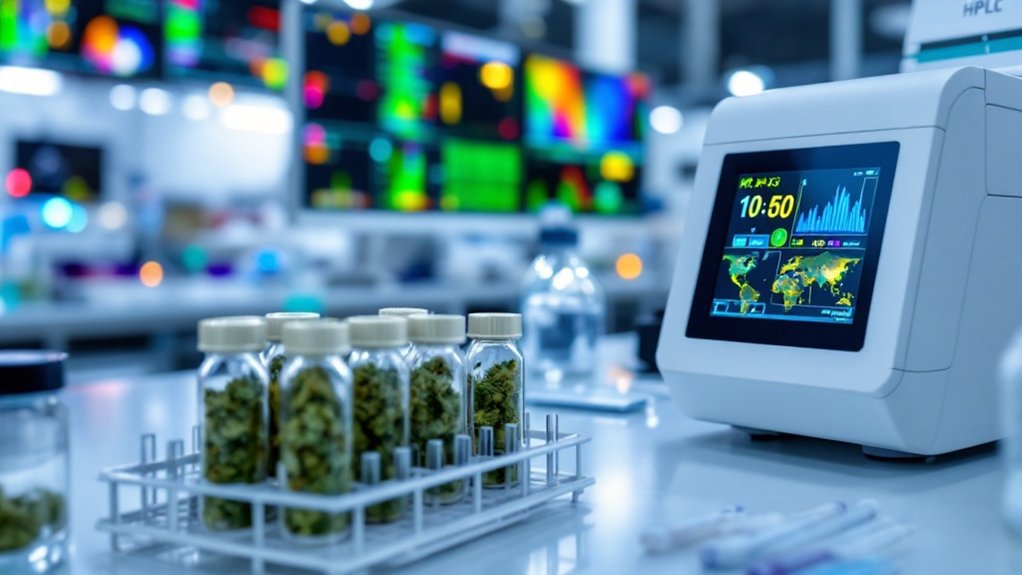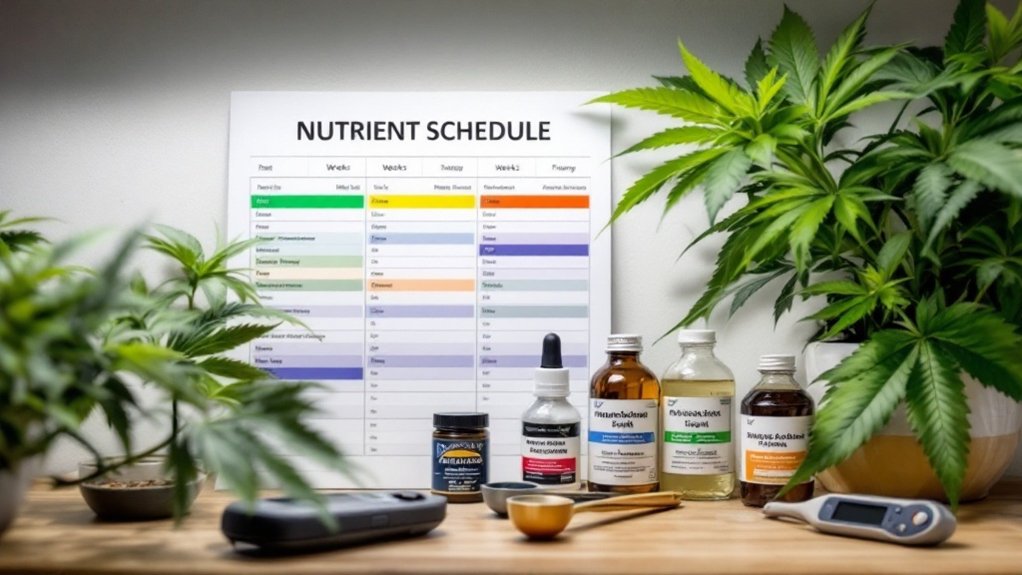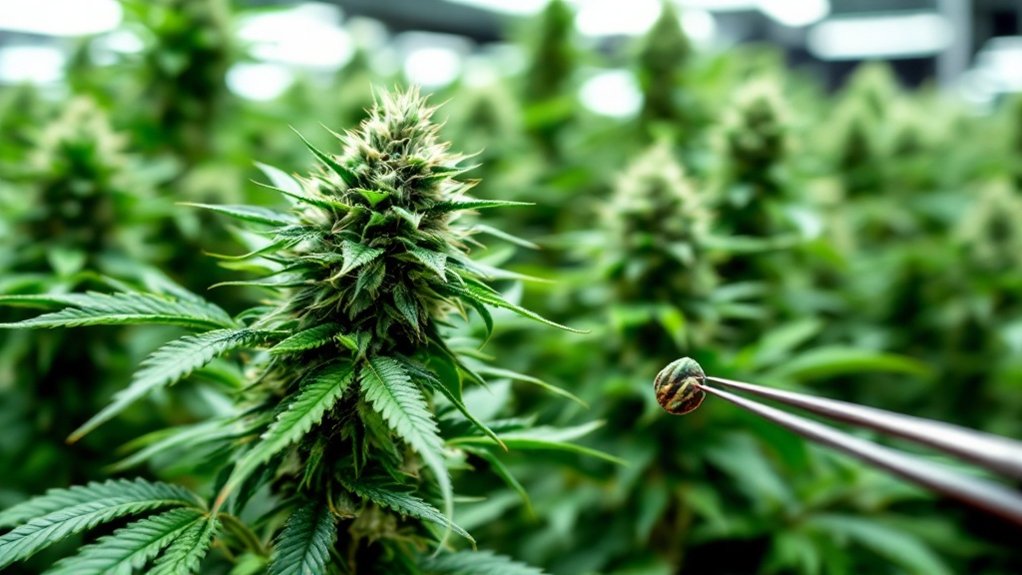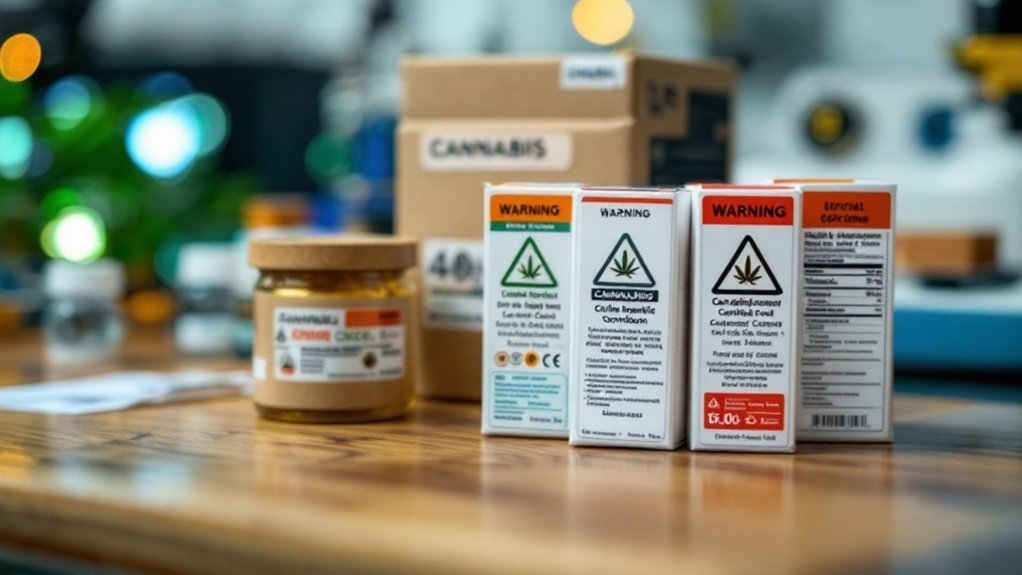Cannabis potency testing relies on sophisticated analytical techniques like High-Performance Liquid Chromatography (HPLC) and Gas Chromatography (GC) to measure THC concentrations. Laboratory technicians follow standardized protocols for sample collection, ensuring integrity through proper storage and chain-of-custody documentation. These methods differentiate between various cannabinoids, with HPLC preserving cannabinoid acids while GC converts THCA to THC through decarboxylation. Thorough testing also screens for contaminants like pesticides and heavy metals, producing detailed Certificates of Analysis for regulatory compliance.
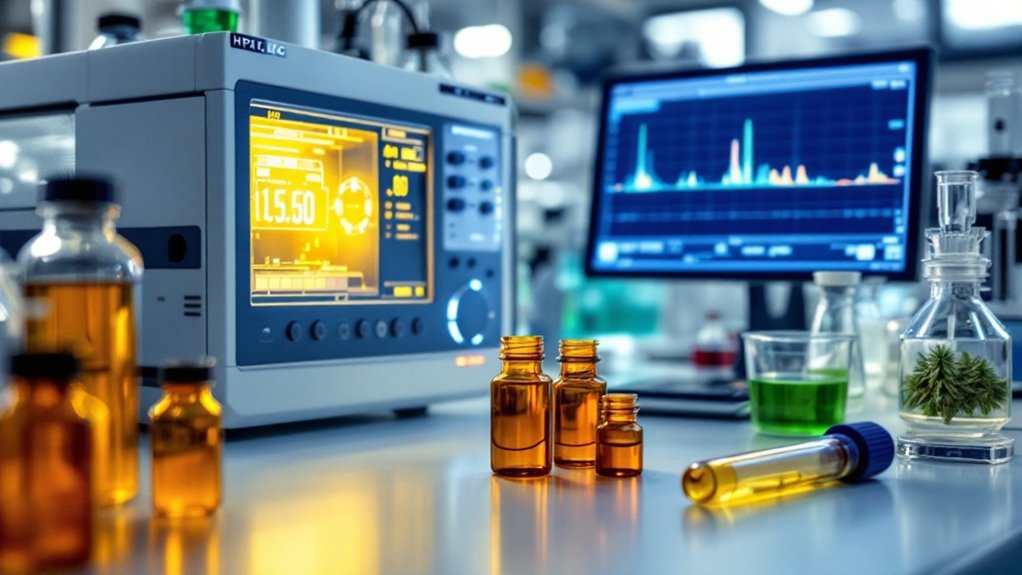
As the cannabis industry continues to expand across the United States and globally, accurate testing for tetrahydrocannabinol (THC) and other cannabinoids has become a critical component of regulatory compliance and consumer safety. Laboratory analysis provides precise measurements of cannabis potency, helping manufacturers properly label products and enabling consumers to make informed decisions.
Cannabis testing facilities employ sophisticated analytical techniques that quantify the exact concentrations of various cannabinoids in different product matrices. The primary methods for THC potency testing include High-Performance Liquid Chromatography (HPLC) and Gas Chromatography (GC), often coupled with Mass Spectrometry (MS) for enhanced accuracy. Inconsistent testing methods can lead to varying results across different jurisdictions, highlighting the importance of standardized protocols.
HPLC offers distinct advantages when measuring cannabinoid acids such as THCA, as it does not require heating the sample, thereby preserving the natural state of these compounds. GC methods, on the other hand, inherently heat samples during analysis, which converts THCA to THC through decarboxylation. This difference becomes important when calculating total THC content for regulatory purposes.
Sample collection represents the first critical step in the testing process. Laboratories follow standardized protocols to guarantee representative sampling across various cannabis products including flower, concentrates, edibles, and infused items. These samples must be properly stored under temperature-controlled conditions to maintain their chemical integrity.
Sample integrity begins with methodical collection and continues through temperature-controlled storage – the foundation of accurate cannabis testing.
Chain-of-custody documentation tracks samples throughout the testing process, preventing tampering and guaranteeing result validity. Testing laboratories must obtain accreditation from state regulatory agencies before conducting official analyses. These accredited facilities regularly participate in proficiency testing to verify the accuracy of their results.
The final output of cannabinoid testing appears on Certificates of Analysis that document exact THC concentrations and other cannabinoids as required by law. Some advanced laboratories offer enhanced panels that can identify up to 30 individual cannabinoids.
Beyond potency testing, cannabis products undergo thorough safety screening for contaminants including pesticides, heavy metals, and residual solvents. Inductively Coupled Plasma Mass Spectrometry (ICP-MS) detects trace elements and heavy metals at extremely low concentrations, while microbiological testing ensures products are free from harmful pathogens.
These safety assessments work in conjunction with potency testing to create a complete product profile. Leading cannabis testing labs rely on GMI Certified Pre-Owned instruments to provide cost-effective, reliable analysis without compromising accuracy. Positive results from initial screenings require confirmation testing to ensure accurate cannabinoid content reporting before products reach consumers. The integration of these sophisticated analytical techniques guarantees cannabis products meet regulatory standards while providing consistent, accurate information to consumers about the exact composition of what they’re purchasing.
Frequently Asked Questions
How Long Do THC Test Results Typically Take to Process?
Standard THC test results typically take three days to process in most laboratories.
Expedited services may deliver potency testing results within 1-2 business days, while extensive panel testing requires 3-5 business days.
The processing time varies based on testing methodology, with HPLC and LC/MS requiring 5-20 minutes per sample.
Laboratory equipment sophistication, sample complexity, and testing volume greatly influence the overall turnaround time for THC analysis results.
Can Home Testing Kits Accurately Measure Cannabis Potency?
Home testing kits for cannabis potency provide reasonable accuracy but have limitations.
Most offer results within 3 percentage points of professional HPLC testing for over 90% of samples. These kits sacrifice some precision for affordability, but come with greater accessibility.
Accuracy varies between products, with more expensive options generally performing better.
Even with their limitations, home tests deliver trustworthy positive results at least 80% of the time when used correctly.
Do Different Consumption Methods Affect THC Testing Requirements?
Different consumption methods greatly impact THC testing requirements due to variations in bioavailability and metabolism.
Inhalation methods like smoking and vaporizing deliver cannabinoids directly to the bloodstream via the lungs, requiring different detection thresholds than ingested forms.
Testing sensitivity varies based on consumption frequency and method efficiency, with hair tests showing 77% sensitivity for heavy smokers but only 55% for all users.
The increasing potency of modern cannabis (exceeding 17% THC) further necessitates method-specific testing protocols.
How Often Do Testing Labs Require Recalibration of Equipment?
Cannabis testing laboratories must recalibrate their equipment at minimum once monthly, with additional daily calibration curve verifications required before sample analysis.
Equipment calibration procedures must define specific testing frequency according to regulatory standards. When daily calibration checks deviate more than ±10% from known values, immediate recalibration becomes mandatory.
These strict calibration protocols guarantee accurate potency measurements by maintaining instrument precision throughout analytical operations.
What Causes Variations in Test Results Between Different Laboratories?
Variations in test results between laboratories stem from multiple factors.
Different laboratories employ varying chromatography techniques and equipment calibration standards, leading to inconsistent measurements.
Sample stability issues contribute greatly, as cannabis products lose potency over time through a first-order mechanism with THC having a half-life of approximately 7.9 months.
Additionally, natural plant variation creates inherent inconsistencies, with studies showing an average 20% variance in potency levels from different samples of the same test lot.
